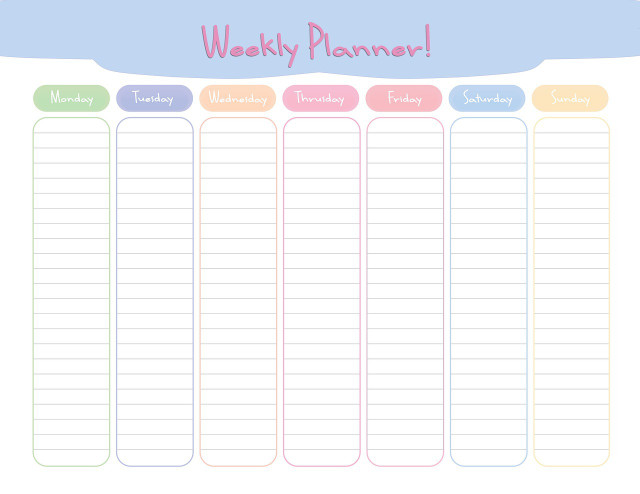If you are struggling to concentrate, check out our tips on how to stay focused while studying. From stress reduction to time organization, we've got you covered.
Learning how to stay focused while studying and working is a skill that will help you throughout your life — if you master it correctly. Drowning out the background chatter in our heads — or real noise from the environment — is just one way in which our focus can be optimized. Keep reading to find easy and effective ways to stay focused while studying.
Focused Studying Essentials
There are many things you can do to improve and maintain your focus while studying. There are also many reasons to stay focused — whether you are studying or not.
Experts believe that two main factors influence our level of concentration — internal and external.
- External factors might include things like time constraints, clutter, or a noisy environment.
- Internal factors can include issues like a lack of motivation, internal dialogues, disorganization and tiredness.
Figuring out how to manage both internal and external factors is the key to learning how to stay focused while studying. It is also key to improving your levels of focused attention in other aspects of your life, too.
1. Organize Your Time

(Foto: CC0 / Pixabay / DesignerMariene)
Eliminate the need for a last-minute, sleepless “cram” period. Create a realistic study schedule that suits your lifestyle instead. Make sure you don’t schedule studying for times when you will likely be tired, distracted or unable to focus. Take some time to think about what times of day you tend to have the easiest and most productive time studying, and consider if you can rearrange other activities to leave those periods free.
Stay focused while studying by color-coding your subjects and highlighting deadlines to stay on track. Prioritize the main areas that require your focused attention. Don’t forget to schedule some self care time, too. Taking time for yourself will help you achieve a healthy work-life balance and leave you relaxed and rejuvenated for when it’s time to study again.
2. How to Stay Focused While Studying: Prepare Your Environment



(Foto: CC0 Public Domain / Unsplash / Samantha Gades)
Clutter is a common distraction and a primary reason you might lose focus while studying. Research has shown that too many things in our visual fields can overwhelm our neural processing. This essentially means that clutter in your work area will compete with the task at hand for the brain’s attention. This competition limits the brain’s processing and concentration abilities.
Read up on good desk organization and learn how to declutter your home to give your brain less external stimulation. You may even want to consider creating a minimalist home or office to soothe your brain to stay focused while studying.
3. Reduce or Eliminate Social Media



(Foto: CC0 Public Domain / Unsplash / Gilles Lambert)
Social media can eat into valuable study time and be a major source of distraction. Around 40 percent of young Americans have reported feeling addicted to social media. Research suggests that internet addiction may actually affect over 210 million users worldwide — and addiction is just one of many negative effects of social media.
Research has also shown that in university students, social media’s utility as a source of support or connection was inevitably overshadowed and instead fed into the students’ perceived depression, anxiety, and stress.
In order to truly stay focused while studying, you need a healthy mindset. Going on a digital detox can help get you there.
4. How to Stay Focused While Studying: Sleep Soundly



(Foto: CC0 / Pixabay / Claudio_Scott)
Research has demonstrated that the quality, length, and consistency of sleep directly correlate with better grades. Sleep deprivation is known to impair attention, working memory, long-term memory and decision-making. Students in the US have reported the following:
- 40 percent admit to feeling inadequately rested five out of seven days of the week.
- One in four state that lack of sleep has affected their academic performance in a negative way.
- Those who sleep six or less hours at night have a lower Grade Point Average than those who get more.
Clearly, getting enough sleep is a vital way to stay focused while studying.
Get yourself into a nighttime routine and try to get more REM sleep. If you have difficulty sleeping, there are many things you can do to fix your sleep schedule, including:
- Chose the right sleep sounds
- Stimulate pressure points for sleep
- Try some yoga poses for better sleep
- Try some herbs for natural sleep
5. Minimize Stress



(Foto: CC0 Public Domain / Unsplash / Tim Gouw)
According to the American Institute of Stress:
- 8 in 10 college students experience frequent episodes of stress.
- Increasing university costs are one of the reasons students are employed — resulting in less time to sleep, study and practice self care.
- Other reported stressors include separation from family, bullying, harassment, coursework and the pandemic.
For some outside factors, like financial obligations or family stress, it can be difficult to feel in control. However, there are ways to mitigate how stress affects you and your wellbeing. Learning how to lower your cortisol is the first step towards reducing stress in your life. You can also try calming tea varieties for stress and anxiety for a quick pick-me-up.
Mindfulness-based stress reduction works on reducing stress by improving your focused attention in the present moment. It could help you manage your stress and provide the foundations to staying focused while studying.
6. How to Stay Focused While Studying: Exercise Regularly



(Foto: CC0 / Pixabay / StockSnap)
Researchers agree that exercise has an abundance of physical, mental and emotional benefits. Studies have confirmed that there is a direct correlation between regular physical activity, cardiovascular fitness, mental health, and wellbeing among university students.
Begin each day with some form of exercise and experience the benefits of a morning workout. Enjoy the benefits of walking — and of mindfulness-based stress reduction — by practicing mindful walking. If you prefer, try some slow jogging and to increase bloodflow to the focus and attention centers in the brain.
If walking isn’t for you, try yoga or yoga alternatives for mindful exercise. Exercise in ways that work for you.
Research now shows that studying combined with exercise improves memory and recall more than studying alone. It is a known booster of concentration and focus — so add it to your study planner. It’s a basic step in how to stay focused while studying.
7. Practice Breath Manipulation



(Foto: CC0 Public Domain / Unsplash / Giulia Bertelli)
We breathe all day every day, but most people don’t give this bodily function a second thought. Breath manipulation is associated with a huge range of benefits that are sure to help you stay focused.
Just some of the research-based benefits include increased comfort, relaxation, pleasantness, vigor, and alertness, and reduced symptoms of arousal, anxiety, depression, anger, and confusion.
Medical students who used deep-breathing exercises reported decreased test anxiety, nervousness, self-doubt, and concentration loss. The study spanned almost two years, and at the end, students felt that using the technique helped them academically and would help them as physicians.
Try the 5-4-3-2-1 method or 4-4-4 box-breath method (in for 4 seconds, hold for 4 seconds, and release for 4 seconds) if you are a beginner. You can also simply count each breath cycle while mindfully focusing on the breath as it enters your lungs for repeated cycles. Taking prolonged, deep belly breaths is also easy and effective.
8. How to Stay Focused While Studying: Meditate



(Foto: CC0 / Pixabay / terimakasih0)
There have been many studies supporting various meditation practices for improved focus and attention. Even simple, brief mindfulness meditation improves focus in novice practitioners. Add in some grounding benefits to your routine and try some different meditation methods until you find one that suits you.
The chakra system is an ancient framework that is ideal for beginners starting any meditation journey. More advanced practitioners might wish to fuel their focus while studying by combining deep belly breaths with Tummo meditation.
9. Eat Healthily



(Foto: CC0 / Pixabay / silviarita)
All of your body and brain functions — like thoughts, focus, and memory — are fueled by food. Many experts believe we can eat our way to concentration — so the correct nutrients are vital. We rely on the calories in food as fuel to provide the energy we need to stay focused.
We get these calories from molecules called macronutrients in our food — also known as carbohydrates, fats and protein. We need plenty of these nutrients. We also need ample, but lesser amounts of micronutrients — or vitamins and minerals — and fiber for a balanced diet and total health.
If you want to learn how to stay focused while studying, eating more plants, less sugar and minimal-to-no animal products. Check out some tips for dealing with sugar withdrawal before you completely cut out sugar from your daily diet.
Eat superfoods for energy and sustainability to help the planet maintain focus and balance too. Don’t forget some rich natural probiotics to really boost your brain power.
Read more:
- Walking Barefoot: Reasons to Lose Your Shoes More Often
- 12 Practical Tips for Minimalist Living: Make Your Life Easier
- 9 Incredible Chocolate Brands for Vegans
Important Information regarding Health-related Topics.
** Links to retailers marked with ** or underlined orange are partially partner links: If you buy here, you actively support Utopia.org, because we will receive a small part of the sales proceeds. More info.Do you like this post?









